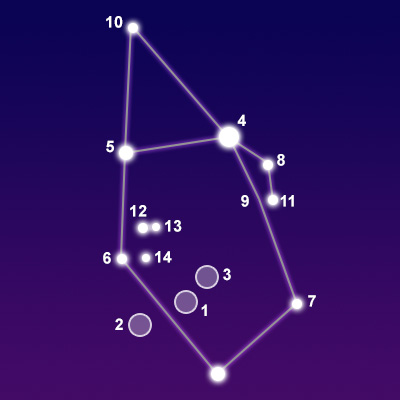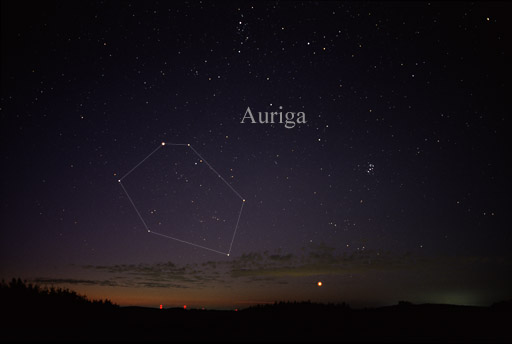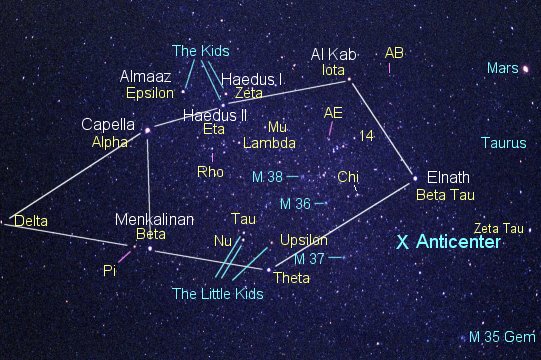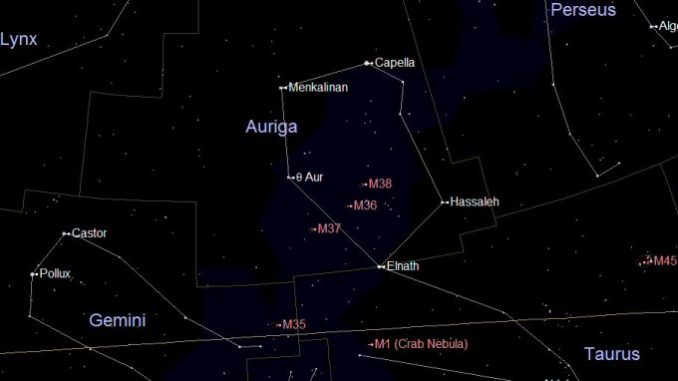
Auriga [aw-rahy-guh] ExamplesWord Origin noun, genitive Au·ri·gae [aw-rahy-jee] /ɔˈraɪ dʒi/. Astronomy.
- the Charioteer, a northern constellation between Perseus and Gemini, containing the bright star Capella.
Origin of Auriga 1400–50; late Middle English Latin: charioteer Examples from the Web for auriga Historical Examples of auriga
Capella is lo-cat-ed in the con-stell-a-tion which you call Auriga.
G. L. Vandenburg
The constellation of Auriga may next command our attention (map No. 5).
Garrett Serviss
I twas situated in the constellation of Auriga, and was noticed on February 1.
G.E. Mitton
In January, 1892, a new star was suddenly seen in the constellation Auriga.
Garrett Serviss
The star β is common to Auriga and Taurus, being the former’s right foot and the latter’s northern horn.
William Tyler Olcott
British Dictionary definitions for auriga Auriga noun Latin genitive Aurigae (ɔːˈraɪdʒiː)
- a conspicuous constellation in the N hemisphere between the Great Bear and Orion, at the edge of the Milky Way. It contains the first magnitude star Capella and the supergiant eclipsing binary star Epsilon Aurigae
Word Origin for Auriga Latin: charioteer Word Origin and History for auriga Auriga
northern constellation, from Latin auriga “a charioteer, driver,” from aureae “bridle of a horse” (from os, genitive oris, “mouth;” see oral) + agere “set in motion, drive, lead” (see act (n.)).
auriga in Science Auriga [ô-rī′gə]
- A constellation in the Northern Hemisphere near Gemini and Perseus. Auriga (the Charioteer) contains the bright star Capella.
 Liberal Dictionary English Dictionary
Liberal Dictionary English Dictionary



